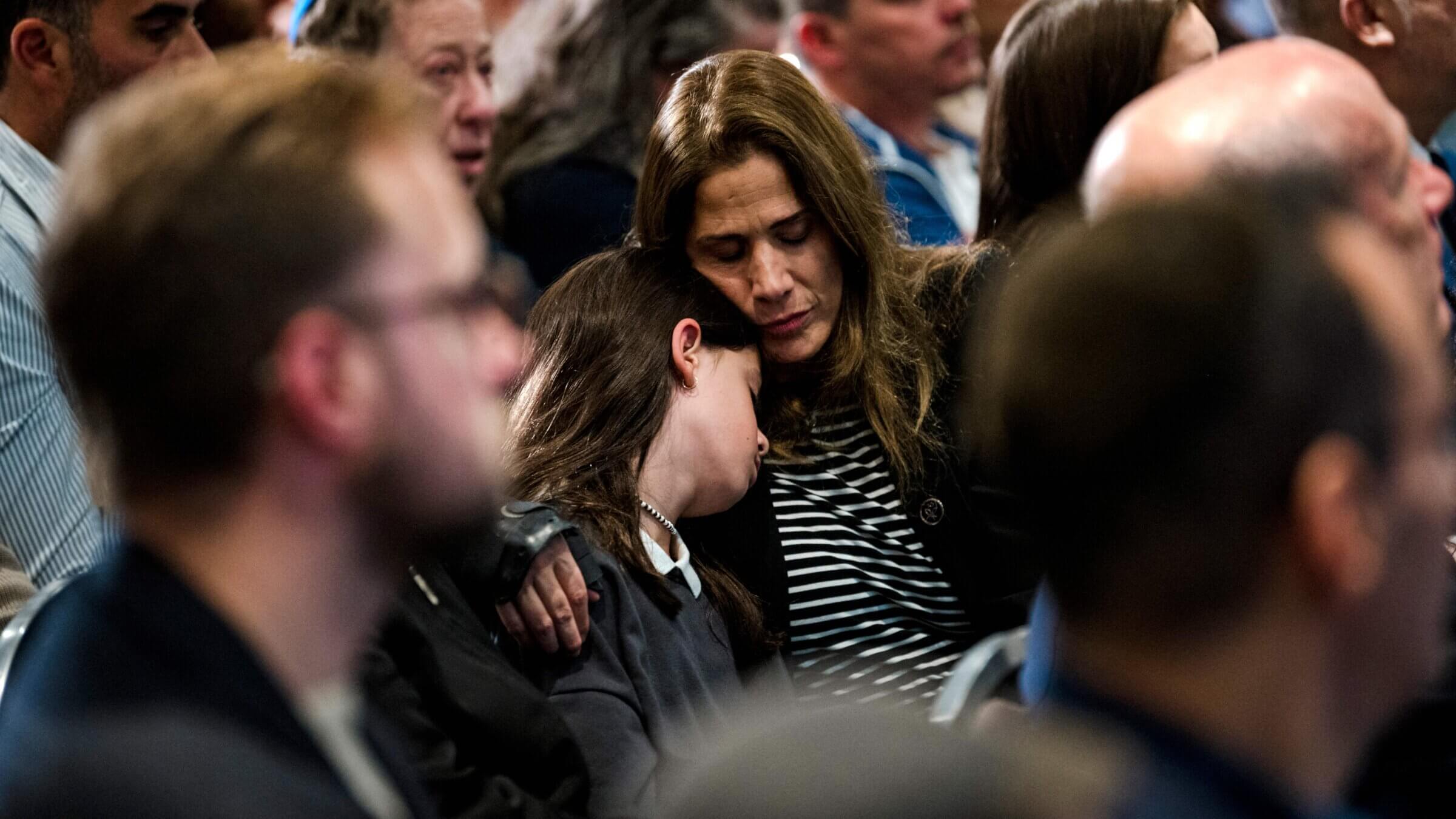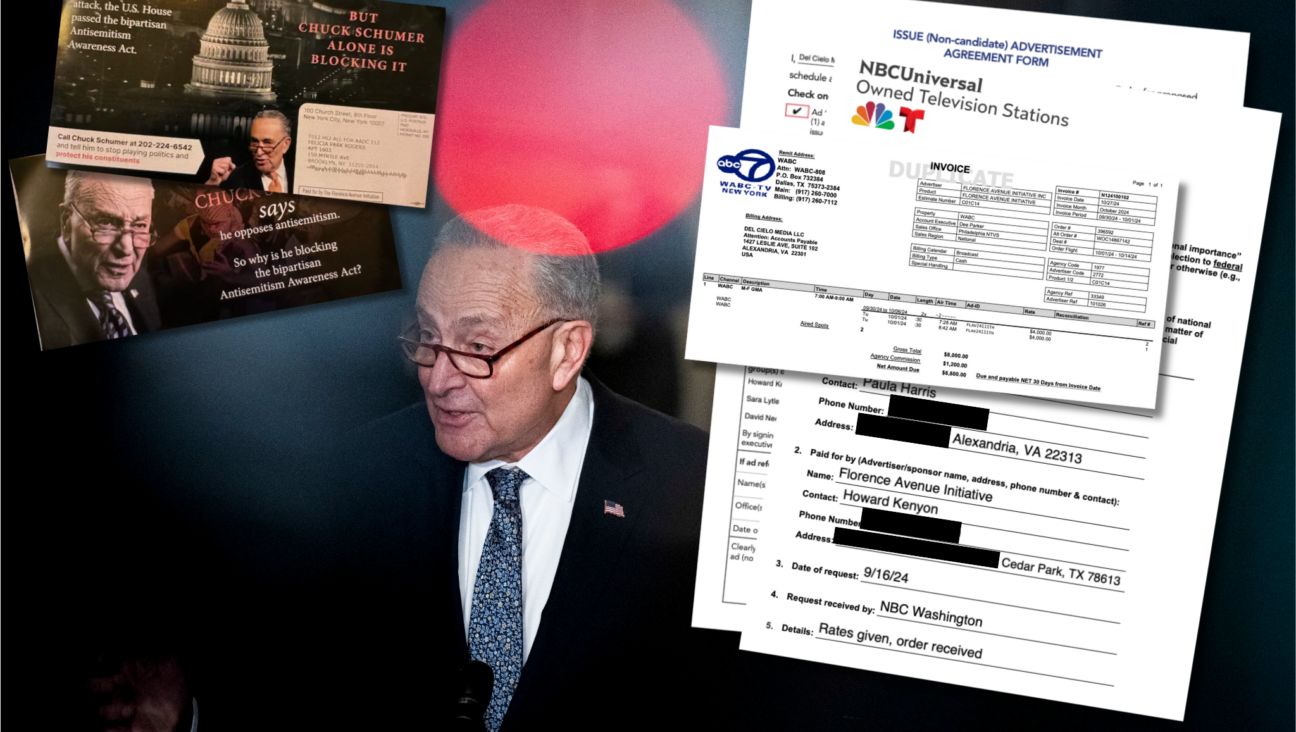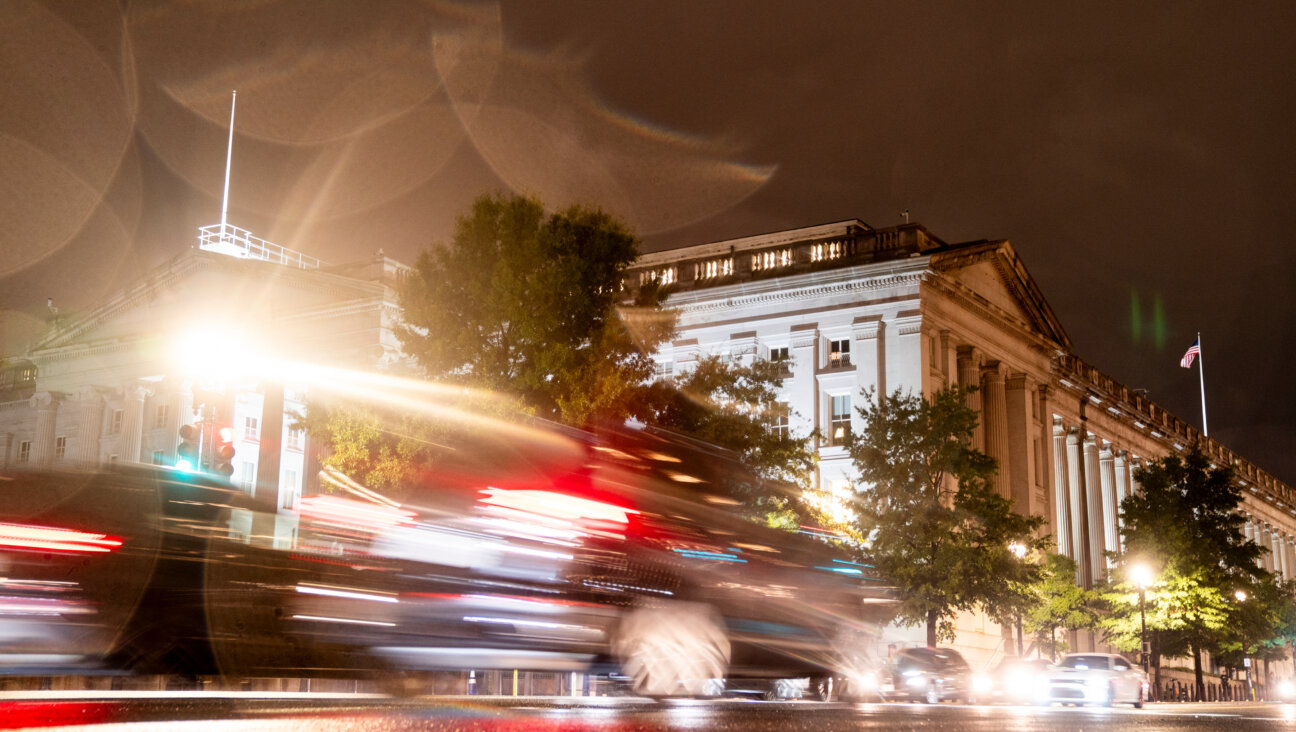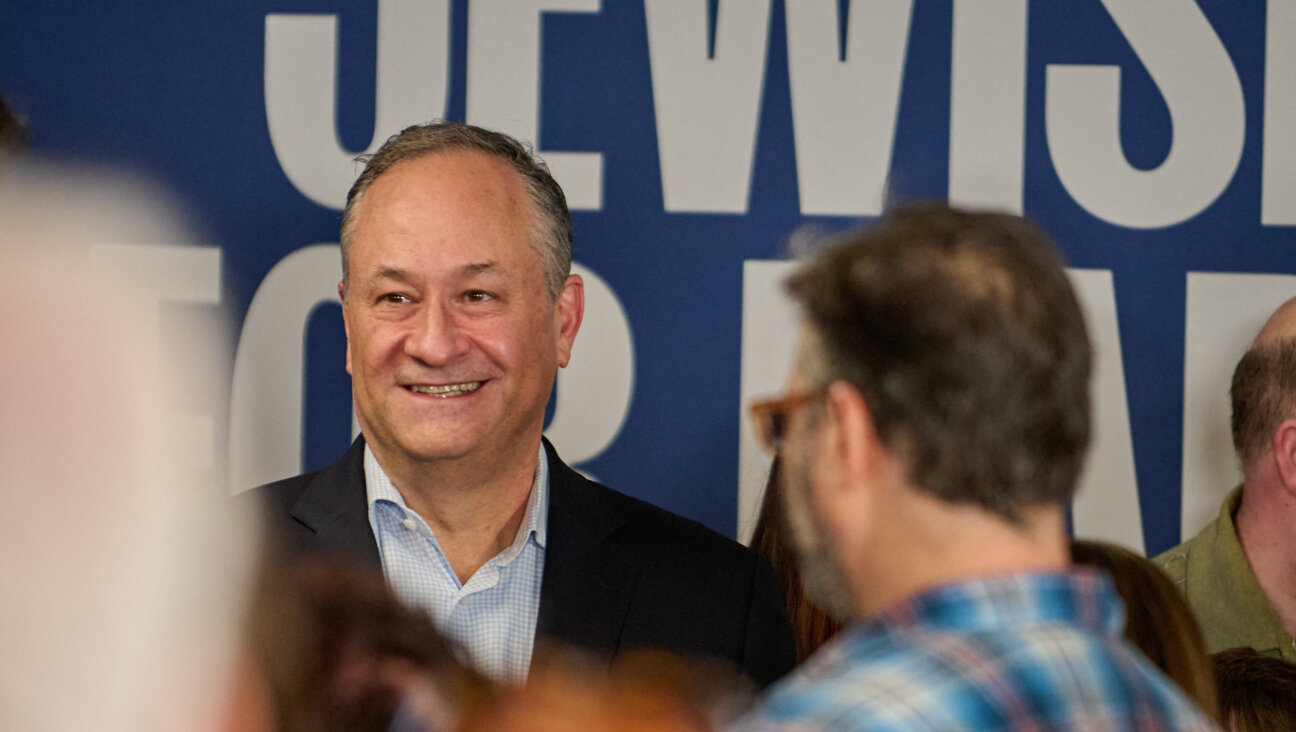What’s behind the wave of antisemitic violence in Canada?
“There’s something in the current rhetoric that makes people feel like Jews and Jewish institutions are fair game,” said Rabbi Lisa Grushcow

Montreal’s Jewish community gathered for a vigil on Oct. 9. Jewish institutions in Canada have faced a series of alarming vandalism, including midnight shootings and arson attacks. Photo by Getty Images
“Antisemitism Notebook” is a weekly email newsletter from the Forward, sign-up here to receive the full newsletter in your inbox each Thursday
I have watched with alarm in recent weeks as a spate of antisemitic vandalism has swept Canada. A synagogue in Vancouver, where I went to college, was lit on fire last week, days after Jewish schools in Toronto and Montreal were shot at overnight. These incidents followed similar ones in the fall.
And it’s not just buildings.
Rabbi Lisa Grushcow, who leads a Reform synagogue in Montreal, said people have yelled “Hitler was right!” and “Jew!” at her congregants as they arrive for Shabbat services and that Jewish kids are being bullied in local schools.
“We’re not folks who go looking for antisemitism,” Grushcow told me. “But there’s something in the current rhetoric that makes people feel like Jews and Jewish institutions are fair game, and that’s really disturbing.”
Zachary Kauffman, an audio journalist in Toronto, said that many Canadian Jews feel pressured to “denounce Israel publicly and loudly.”
“They just feel the gaze of suspicion on them all the time, like people are waiting for them to declare whether they’re a ‘good Jew’ or a ‘bad Jew’,” Kauffman explained.
The most acute difference between what’s happening in the United States and Canada is that here there seems to be a much broader — if still imperfect — understanding of the distinction between American Jews and Israel.
There are more than 7 million Jews in the U.S., compared to roughly 400,000 in Canada, and American Judaism is more associated with liberal politics. This extends to the Israeli-Palestinian conflict, with J Street representing a significant segment of liberal Zionists, and anti-Zionist Jews well-represented in organizations like Jewish Voice for Peace and Students for Justice in Palestine.
That means even the fiercest opponents of Israel in the U.S. are more likely to know Jews who share their politics and who can help shape protests in a way that is sensitive to Jewish concerns, and counsel their comrades when, for example, a Jewish day school ends up on a list of targets.
The presence of Jews in the Palestinian solidarity movement here hasn’t prevented all instances of antisemitism among critics of Israel, of course. But whatever benefit they have provided seems to be largely missing in Canada.
“There just aren’t enough people to have critical masses across the ideological spectrum, so Canadian Jews end up being a lot more isolated,” Kauffman explained. “People who are very worked up about the Palestine issue are not interacting with Jews in their movements; there’s no representation for them.”
That has led to some ostensible condemnations of the antisemitic attacks that Kauffman said make things worse. “We’re not going to be able to fix anything right now until there’s a ceasefire,” Brian Masse, a member of parliament, said during a floor speech about antisemitism in March.
Grushcow said many community leaders’ reluctance to unequivocally condemn the outbreak of Canadian antisemitism has been painful: “The disturbing implication is that somehow it’s deserved.”
READ MORE:
- Grushcow was named one of the Forward’s “most inspiring rabbis” in 2015 and profiled by The New York Times in 2019 as a Canadian rabbi broadening the Jewish tent
- I appeared on a Canadian Jewish News podcast produced by Kauffman earlier this year to talk about the protest encampments on college campuses
A message from our Publisher & CEO Rachel Fishman Feddersen

I hope you appreciated this article. Before you go, I’d like to ask you to please support the Forward’s award-winning, nonprofit journalism during this critical time.
We’ve set a goal to raise $260,000 by December 31. That’s an ambitious goal, but one that will give us the resources we need to invest in the high quality news, opinion, analysis and cultural coverage that isn’t available anywhere else.
If you feel inspired to make an impact, now is the time to give something back. Join us as a member at your most generous level.
— Rachel Fishman Feddersen, Publisher and CEO
























